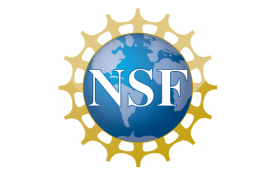-
A face-scanning algorithm increasingly decides whether you deserve the job
An artificial intelligence hiring system has become a powerful gatekeeper for some of America’s most prominent employers, reshaping how companies assess their workforce — and how prospective employees prove their worth. ... But Lisa Feldman Barrett, a neuroscientist who studies emotion, said she is “strongly skeptical” that the system can really comprehend what it’s looking at. She recently led a team of four senior scientists, including an expert in “computer vision” systems, in assessing more than 1,000 published research papers studying whether the human face shows universal expressions of emotion and how well algorithms can understand them.
-

NSF Funding for Research on Smart and Connected Health
This grant opportunity, through the Smart and Connected Health (SCH) program, supports approaches that partner behavioral, biological, and medical research with technological transformations.
-
The Unexpected Joy of Repeat Experiences
Scrolling through Instagram can quickly convince you that everyone’s life is more interesting than yours. During a particularly adventurous week on Instagram Stories recently, I saw water skiing in Maui, hiking in Yosemite and swimming with wild pigs in Bermuda. Wild pigs! Impulsively, I started Googling flights to new places. Then I ordered pho from the same Vietnamese place I eat at every week and … felt bad about not trying somewhere new.
-
The Three Personalities of America
A few years ago, Jason Rentfrow, a psychologist at the University of Cambridge, dug into a question that has captivated him for decades: Do different places have different personalities? Do people in Los Angeles, for instance, have measurably different temperaments from the residents of Augusta, Georgia? If so, what does that mean for both places? Rentfrow decided to test these questions on a phenomenon that has captivated all of America lately: the rise of Donald Trump. ... Rentfrow had a breakthrough in 2013, when he and others published a study that suggested the U.S.
-
Do we actually grow from adversity?
In our culture, there’s this idea that enduring a tragedy can be good for your personal growth. You’ll have a newfound appreciation for life. You’ll be grateful for your friends and family. You’ll learn from the experience. You’ll become more resilient. This theme appears in media coverage, time and again, in the wake of natural disasters and terrorist attacks. But what does the science say? Is there actually value in pain and suffering? Was philosopher Frederich Nietzsche onto something when he said, “That which does not kill us, makes us stronger”?
-
Tips for easing the service burden on scientists from underrepresented groups
During Neil’s first semester as a faculty member, a group of Black undergraduates came by his office to welcome him to the department. It was a kind gesture that he remembers fondly, but one of the things they said stuck with him: “We’re so happy that you’re here. We never thought there would ever be another one,” by which they meant another Black professor. At first, he thought it was an odd statement. Why did they doubt that there could be two Black professors in the same department? But then Neil remembered being in their shoes.

